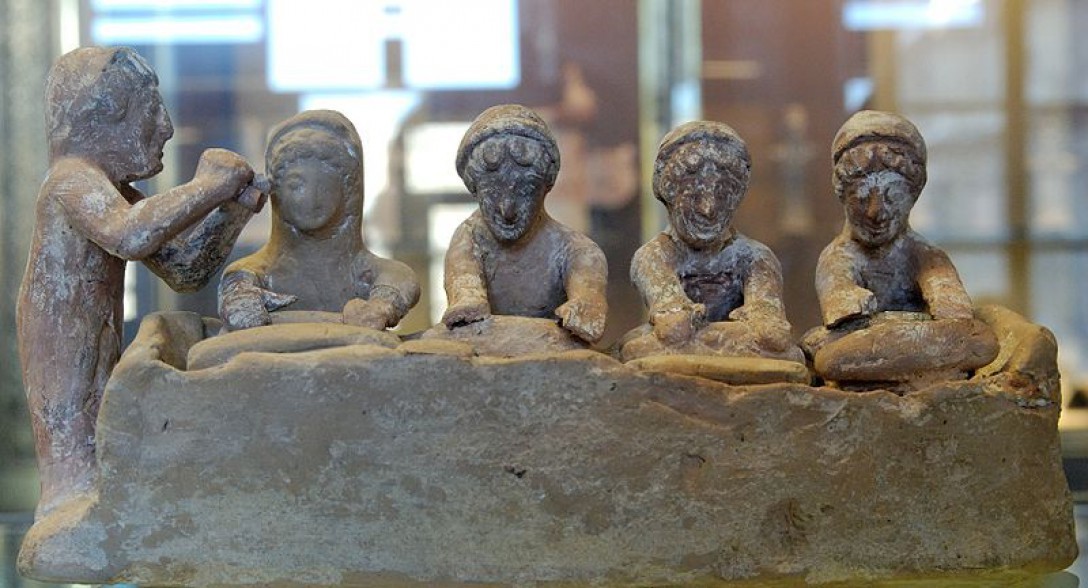Pagophagia* is a disorder that encompasses daily craving and eating of ice, snow or iced water. The Byzantine Emperor Theophilus (829-842 AD) died from dysentery, the possible cause of which may be connected to Theophilus’ pagophagia, in order to relieve the symptoms of gastric inflammation. The following passage is from the worth reading paper THE FIRST CASE OF PAGOPHAGIA: THE BYZANTINE EMPEROR THEOPHILUS (829-842 AD) by Effie Poulakou-Rebelakou, Costas Tsiamis and Dimitrios Ploumpidis. It describes the case of snow consumption by Theophilus.
”The chronicler Ioannis Zonaras narrates an episode occurring during the
Emperor’s stay in the city of Dorylaeon (Asia Minor) where he was informed
about his army’s defeat and the capture of some of his beloved generals:
The disaster sat on the soul of Theophilus without any consolation and he denied any food or drink except very frozen water, deriving from snow. Ingesting only this, he hurt his digestive system and dysentery emerged (Zonaras, 1897). Zonaras supports that the Emperor, besides consuming unhealthy water derived from snow, suffered for psychological reasons, mainly the sorrow of his defeat and the consequent capture of his most eminent military leaders. Another chronicler, Ephraem, in his “Historia Chronica” clarifies the aetiology of the disease and describes the Emperor’s state, who “melts from grief” and finally died from the additional disease: Consequently the king’s soul melts because of a great sorrow and a fatal disease ended his life (Ephraem, 1990).”
Pagophagia is a type of pica that is the ingestion of extraordinary quantities of unsual foods such as clay, chalk etc.
The first mention of pica might have been by Hippocrates of Kos (5th century B.C.). He wrote about pregnant women’s desire to eat earth or charcoal.
Hippocrates was talking about geophagia*. Greek, Roman and Byzantine physicians were familiar with it. Aetius, a Byzantine Greek physician (6th century AD) states: ”Approximately during the second month of pregnancy, a disorder appears that has been called Pica, a name derived from the bird kissa (magpie)… Women then desire different objects… some prefer spicy things, others salty dishes and again others earth, egg shells or ashes”**
*The terms geophagia and pagophagia derive from the Greek verb phagein (to eat) and the words Gaia (earth) and pagos (ice) respectively.
**Wegscheider M. Geburtshülfe und Gynäkologie bei Aëtius von Amida. Berlin: Julius Springer Verlag, 1901: 11-12


